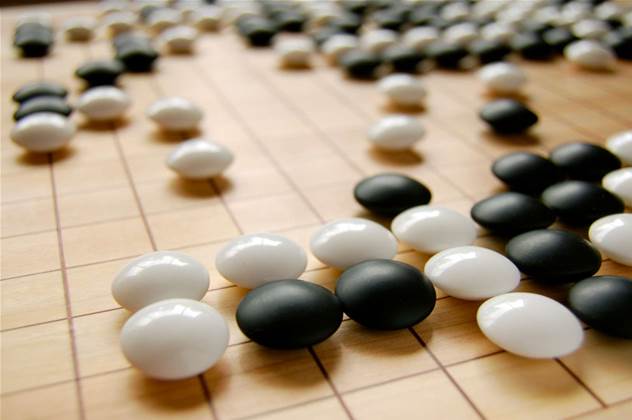The ancient board game Go may hold the key to better decision-making in the enterprise, a new study from Charles Sturt University (CSU) has found.

Over the past ten years, an international research group headed by CSU’s Professor Terry Bossomaier has been investigating shifts in the way people think as they reach peak levels of performance in particular disciplines.
These identifiable patterns could be used to build smarter computers and more capable thinkers in a variety of different industries.
“We think that when people or a community gain experience or knowledge in something, you sometimes have a paradigm shift in the way [they] look at things," Bossomaier told iTnews.
“What we’re trying to do is get a deeper understanding of the ways humans learn and organise their knowledge which would then enable us to put this into computational algorithms.”
Bossomaier’s research team analysed tens of thousands of Go games recorded online in an attempt to discover recurring shifts in thinking as players gradually improved.
“We looked at the behaviour of decisions people make and how these behaviours vary as they go from essentially club grades through to [top Go rank] Nine Dan professional,” Bossomaier said.
“What we found was that there are these noticeable transitions, where peoples’ thinking are dramatically reorganised before they move on to the next [skill] stage.”
Schematic representation of the intersection between experts and non-experts (CSU).
Go, which originated in China over 2,500 years ago, involves each player attempting to fill a 19x19 square grid with coloured stones. Whoever covers a larger total area of the board wins the match.
CSU decided to use Go as the focus of the study because of the game’s simple rules and strategic complexity.
“Go is really interesting because it’s the most difficult of all games for computational intelligence,” Bossomaier said.
“So far, no computer program has come anywhere close to beating a top human player at Go -- we still don’t understand how to build a computer Go player that is better than a human.”
Finance, health applications
Bossomaier said there were two chief ways in which the research project’s findings could be applied to enterprise applications.
“The first method is producing decision making systems for complex environments," Bossomaier said.
"So this is environments where you’re got very many influential factors; what we call complex decisions. It could be anything from financial trading through to medicine"
In addition to producing smarter computers, Bossomaier said the research could lead to new training techniques designed to untap the full potential of human employees.
“Potentially, [our findings] could be used to actually measure and track how people are moving towards the level of top expertise," Bossomaier said.
"The next stage of our work is to try and establish how far our results generalise beyond games and whether we could see the same sorts of transitions in workplace occupation.
"So for example, could we see it in financial trading? If we can develop new sets of metrics to help in education and training, there’s definitely some potential there.”
The research project is not currently affiliated with or sponsored by any companies.


_(23).jpg&h=140&w=231&c=1&s=0)

.png&h=140&w=231&c=1&s=0)






 iTnews Benchmark Awards 2026
iTnews Benchmark Awards 2026
 iTnews Executive Retreat - Security Leaders Edition
iTnews Executive Retreat - Security Leaders Edition
 iTnews Cloud Covered Breakfast Summit
iTnews Cloud Covered Breakfast Summit
 The 2026 iAwards
The 2026 iAwards












_(1).jpg&h=140&w=231&c=1&s=0)



